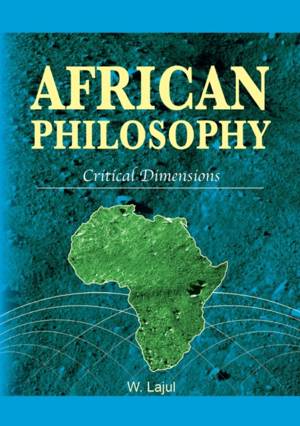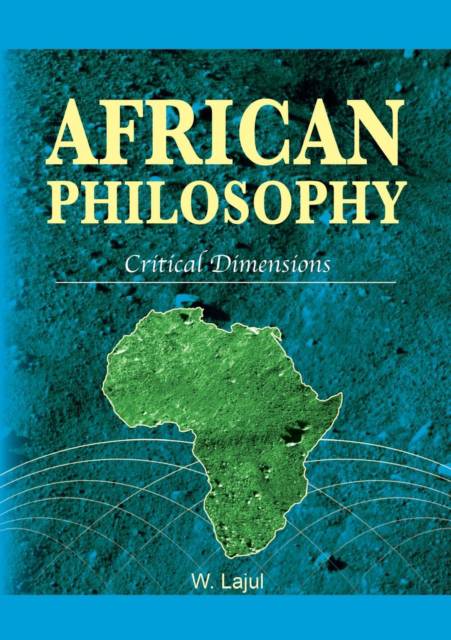
- Retrait gratuit dans votre magasin Club
- 7.000.000 titres dans notre catalogue
- Payer en toute sécurité
- Toujours un magasin près de chez vous
- Retrait gratuit dans votre magasin Club
- 7.000.0000 titres dans notre catalogue
- Payer en toute sécurité
- Toujours un magasin près de chez vous
Description
African philosophy has for long been rejected on the basis that it is not known, or has not been written down. Behind this view is the idealist presumption that for something to exist, it must first be perceived. However, for something to be perceived, it must first exist. African Philosophy: Critical Dimensions examines what constitutes African philosophy in terms of its meaning, foundation, sources, methodology, characteristics, and relevance. The book analyses traditional African philosophy from the political, social, ethical, epistemological and metaphysical angles.
The book further critically discusses modern African political philosophy, modern African social philosophy, modern African economic philosophy, and modern African philosophy of religion. It ends with the identification of the different conclusions that were derived from the study and general recommendations, some specifically for researchers and writers, especially in the area of African philosophy. Wilfred Lajul joins other authentic voices examining African Philosophy.
Spécifications
Parties prenantes
- Auteur(s) :
- Editeur:
Contenu
- Nombre de pages :
- 268
- Langue:
- Anglais
Caractéristiques
- EAN:
- 9789970253074
- Date de parution :
- 14-12-13
- Format:
- Livre broché
- Format numérique:
- Trade paperback (VS)
- Dimensions :
- 148 mm x 210 mm
- Poids :
- 353 g

Les avis
Nous publions uniquement les avis qui respectent les conditions requises. Consultez nos conditions pour les avis.






